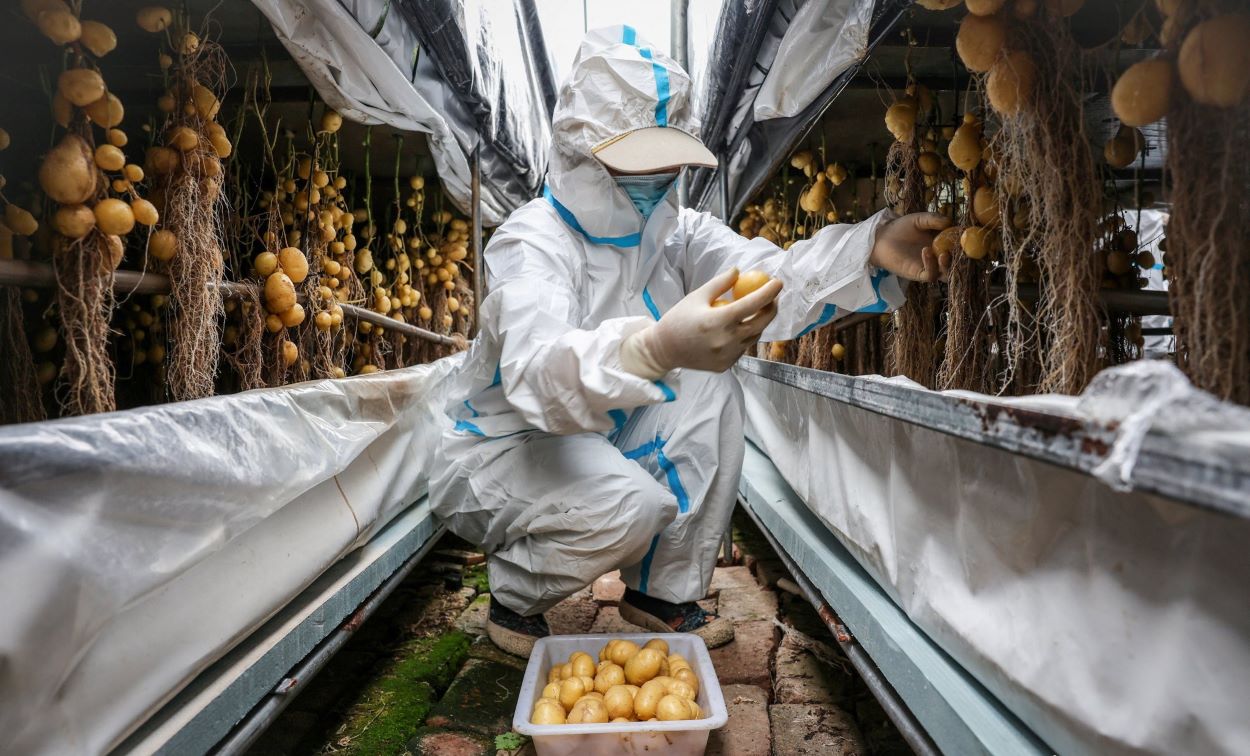In a research facility northwest of Beijing, molecular biologist Li Jieping and his team harvested a small cluster of potatoes, one as tiny as a quail’s egg, as reported by Reuters. These potatoes, grown under simulated high-temperature conditions, weighed a mere 136 grams (4.8 oz)—far less than the typical Chinese potato.
As the world’s leading potato producer, China confronts significant challenges due to the crop’s heat sensitivity. Climate change exacerbates this issue by increasing temperatures and intensifying droughts and floods, threatening global food security.
Leading a three-year study at the International Potato Center (CIP) in Beijing, Li explores the effects of higher temperatures on China’s main potato varieties. “I am concerned about future impacts,” Li stated, emphasizing potential declines in potato yields and their effects on food security.
His team’s research, conducted over three months in a heated chamber, found that potato yields decreased by more than half while growth cycles shortened by 10 days. Moreover, a United Nations report has indicated that temperatures could rise by up to 3.1 C by 2100 if current climate policies persist.
In response to these challenges, agricultural methods are evolving. In Inner Mongolia, workers race against time to harvest potatoes between rains, struggling with delays and disease due to increased moisture, according to farm manager Wang Shiyi.
CIP’s collaborative project with the Chinese government focuses on developing heat-tolerant potatoes. In Li’s lab, workers manually pollinate plants to breed resistant strains, preparing for the upcoming climate shifts. Li advises that farmers adjust their practices soon, suggesting planting or relocating to cooler areas earlier.
“Farmers must adapt to climate change,” Li emphasized. Without new strategies, he warned, farmers will earn less from reduced yields, potentially driving up potato prices.






